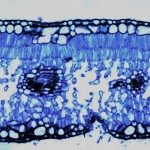Lien vers Pubmed [PMID] – 39138238
Lien DOI – 10.1038/s41467-024-51428-0
Nat Commun 2024 Aug; 15(1): 6963
Cholera is a life-threatening gastrointestinal infection caused by a toxigenic bacterium, Vibrio cholerae. After a lull of almost 30 years, a first case of cholera was detected in Lebanon in October 2022. The outbreak lasted three months, with 8007 suspected cases (671 laboratory-confirmed) and 23 deaths. In this study, we use phenotypic methods and microbial genomics to study 34 clinical and environmental Vibrio cholerae isolates collected throughout this outbreak. All isolates are identified as V. cholerae O1, serotype Ogawa strains from wave 3 of the seventh pandemic El Tor (7PET) lineage. Phylogenomic analysis unexpectedly reveals the presence of two different strains of the seventh pandemic El Tor (7PET) lineage. The dominant strain has a narrow antibiotic resistance profile and is phylogenetically related to South Asian V. cholerae isolates and derived African isolates from the AFR15 sublineage. The second strain is geographically restricted and extensively drug-resistant. It belongs to the AFR13 sublineage and clusters with V. cholerae isolates collected in Yemen. In conclusion, the 2022-2023 Lebanese cholera outbreak is caused by the simultaneous introduction of two different 7PET strains. Genomic surveillance with cross-border collaboration is therefore crucial for the identification of new introductions and routes of circulation of cholera, improving our understanding of cholera epidemiology.




